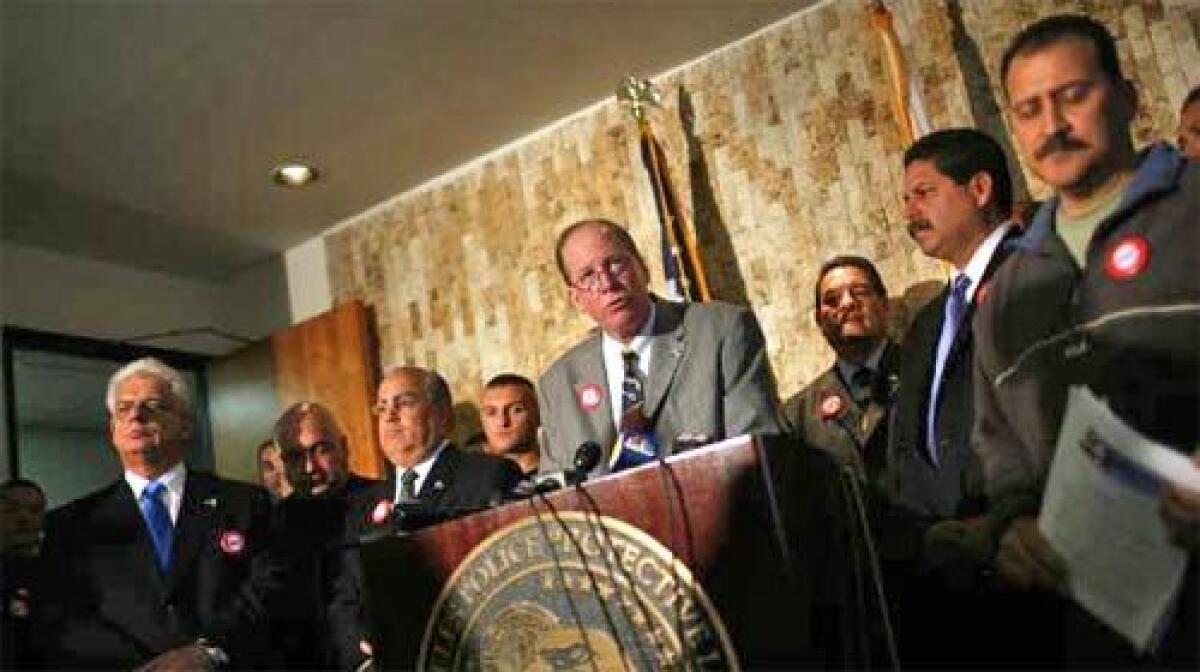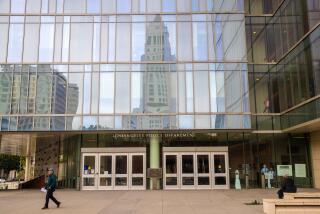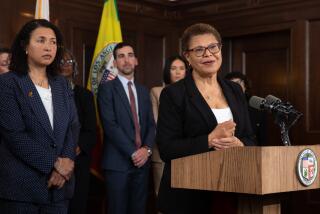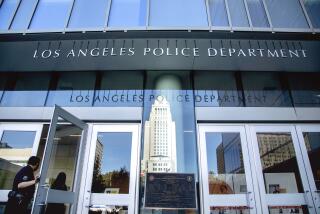Council to weigh financial disclosure rules for LAPD

The Los Angeles City Council pulled rank on the civilian Police Commission on Tuesday, moving to review a controversial policy that requires hundreds of anti-gang and narcotics police officers to disclose detailed information about their personal finances.
The council’s unanimous vote to assert jurisdiction adds to an already fiery debate over the financial disclosure plan, which has angered LAPD officers and their union leaders.
The action effectively delays the implementation of the financial disclosure plan until the council decides in coming weeks whether to overturn it.
“This policy raises a number of questions,” said Councilman Jack Weiss, who sponsored the motion. “Will it do much of anything to detect bad cops and . . . will it have an overwhelming and negative and demoralizing impact in good cops?”
The unusual move was a setback for police commissioners and Police Chief William J. Bratton, who were hoping that the plan would be one of the last pieces in a sweeping set of reforms that began after the Rampart corruption scandal and has kept the Los Angeles Police Department under federal oversight since 2000.
Bratton and Commission Vice President John Mack expressed frustration after the vote, saying that the federal judge who oversees the reforms mandated in the consent decree has been adamant about the need for a strict disclosure policy.
“In the end there is going to be financial disclosure,” Bratton said. “Nothing that is going to happen in [the City Council] is going to change the judge’s decision, in my opinion.”
The commission’s policy, which the panel approved last month, is intended to help supervisors detect whether officers who frequently handle cash, drugs and other contraband are taking bribes or are involved in other illegal conduct.
Under the policy’s terms, about 600 officers would be required to disclose to department officials any outside income, real estate, stocks, other assets and debts every two years. They also would have to reveal the size of their bank accounts and include any holdings they share with family members or business partners. Officers already assigned to the units would be granted a two-year grace period.
But officers, police union officials and other critics have lashed out at the plan.
More to Read
Start your day right
Sign up for Essential California for news, features and recommendations from the L.A. Times and beyond in your inbox six days a week.
You may occasionally receive promotional content from the Los Angeles Times.







